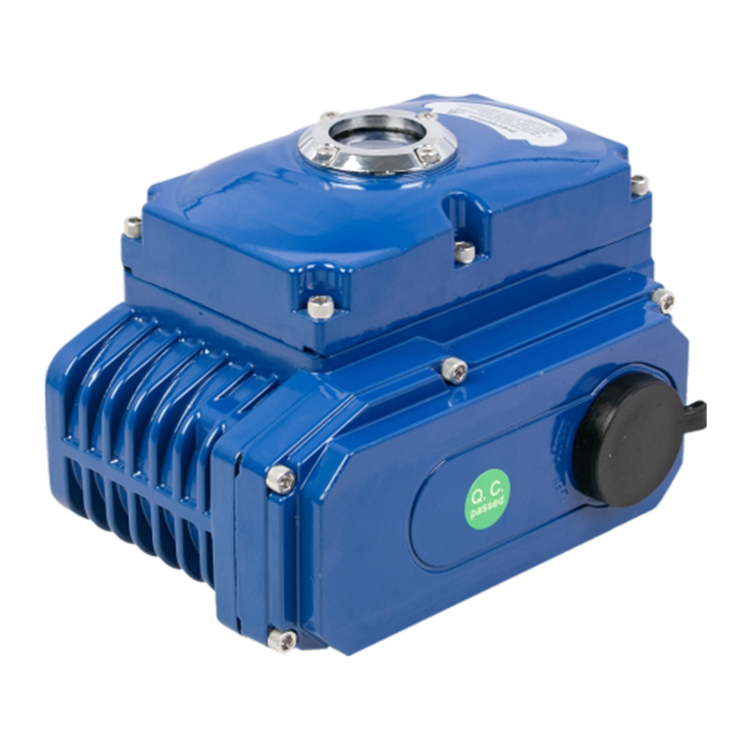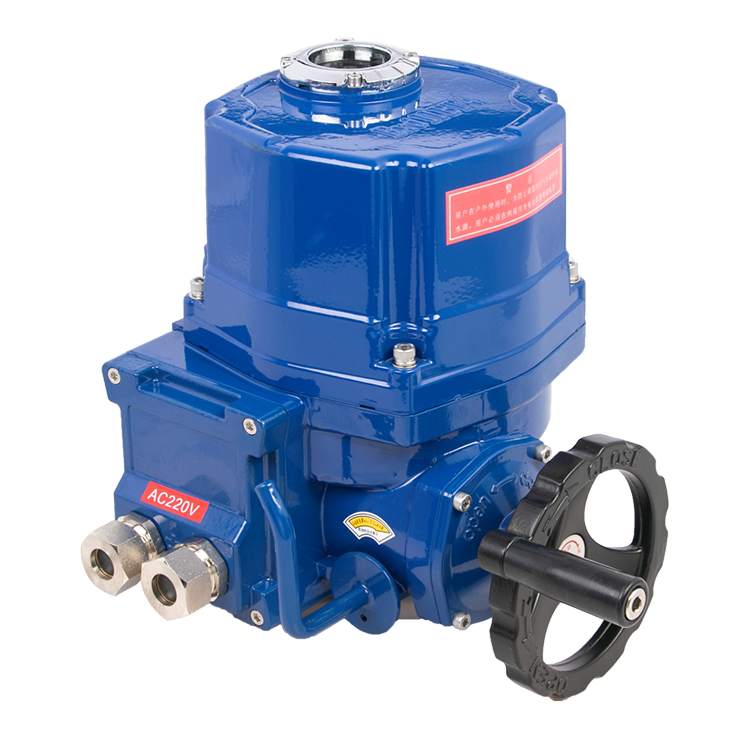Introduction
Reading this article about electric actuators will provide valuable insights into how these devices work and their essential role in various industries. Understanding the components and functions of electric actuators can benefit individuals seeking precise control over mechanical movements and automation processes. Additionally, learning about the top 10 actuator manufacturers in China can help you identify high-quality solutions for their industrial needs.
By exploring topics such as the working principle, functions, and applications of electric actuators, you can gain a deeper understanding of their significance in automation, regulation, energy efficiency, and safety. Whether in manufacturing, automotive, aerospace, or medical fields, the knowledge shared in this article can help individuals make informed decisions when selecting electric actuators for their specific requirements. Overall, this article offers valuable information on electric actuators and the leading manufacturers in the industry.
Key Points
- Electric actuators convert electrical energy into mechanical motion.
- Key components include electric motor, power supply, and drive mechanism.
- Actuators are precise, reliable, and energy-efficient for various applications.
- Feedback systems ensure accurate positioning and movement control.
- Used in automation, regulation, energy efficiency, safety, and integration.
- Top 10 Actuator Manufacturers in China provide high-quality solutions.
What Is An Electric Actuator?
An electrical actuator is a type of device utilized to convert electrical energy right into mechanical motion. It is an important component in different commercial applications, providing precise control over mechanical movements. These actuators are widely utilized in systems where automatic control of processes is required, such as in production and robotics.
The primary components of an electric actuator commonly consist of an electrical motor, a power supply, and a system (such as gears or screws) to convert the rotational movement of the motor into linear or rotary activity. This conversion process allows electrical actuators to execute a wide variety of features, from opening and closing valves to moving robot arms with high precision.
Electric actuators are preferred in many sectors as a result of their accuracy, reliability, and convenience of integration with electronic control systems. They are commonly utilized in applications where exact control and repeatability are essential. Furthermore, electrical actuators are generally more energy-efficient than their pneumatically-driven or hydraulic counterparts, making them a favored selection for numerous modern-day systems.
|
Element |
Description |
|
Electric Motor |
Converts electric power into rotational movement. |
|
Power Supply |
Supplies the needed electrical power for the motor. |
|
Device (Gears/Screws) |
Translates motor’s rotational motion into straight or rotary activity. |
In the marketplace, numerous actuator suppliers specialize in creating high-quality electric actuators. These actuator companies variety from big international companies to specific firms concentrating on niche applications. The continual innovations in actuator innovation are driven by the need for extra efficient, exact, and reputable options in various commercial sectors.

Source: LORZEN
What Is Working Principle Of Electric Actuator?
An electric actuator is a device that converts electric power right into mechanical movement. This type of actuator is extensively utilized in different commercial applications to manage and automate machinery and procedures. The functioning principle of an electrical actuator entails several crucial parts and steps.
Firstly, the electrical actuator is powered by an external electrical resource, generally including either a/c or DC power. The electrical power is provided to an electric motor within the actuator, which is a vital part in the conversion procedure. The electric motor can be a stepper electric motor, servomotor, or any other type of motor depending upon the details requirements of the application.
When the electric motor obtains the electrical signal, it starts to rotate. This turning is then transferred to a mechanical aspect such as an equipment system or a screw system. These mechanical elements are in charge of translating the rotational movement of the electric motor into direct or rotary movement, depending upon the style of the actuator. For example, in a straight actuator, a screw mechanism transforms the rotating movement right into linear variation.
The motion generated by the actuator can be specifically controlled via comments systems such as encoders or potentiometers. These feedback systems check the placement and motion of the actuator, sending out information back to a controller. The controller changes the electrical input to the motor to ensure the actuator gets to the wanted placement with high precision.
One of the essential benefits of electric actuators is their ability to give precise control over activity. This is especially crucial in applications calling for great adjustments and repeatability. Additionally, electrical actuators are understood for their reliability and reduced upkeep compared to other kinds of actuators, such as hydraulic or pneumatic actuators.
Electric actuators are used in a large range of applications, from commercial automation and robotics to aerospace and automotive systems. Firms concentrating on actuator manufacturing have developed many designs to meet the diverse needs of different sectors. Leading actuator companies continuously introduce to boost the efficiency, effectiveness, and longevity of their products.
What Is The Function Of Electric Actuator?
An electric actuator is an essential element in various industrial applications, offering the main function of transforming electric power into mechanical motion. This procedure makes it possible for the exact control and automation of various systems. The core functions of electric actuators can be classified into a number of vital areas:
1. Automation and Control
Electric actuators play a crucial role in the automation of machinery and procedures. By offering precise control over movement and positioning, they make certain that commercial operations run smoothly and efficiently. This is especially vital in markets such as manufacturing, where actuator manufacturers supply components that are indispensable to the operation of automated assembly lines and robotic systems.
2. Regulation and Change
In numerous applications, electrical actuators are utilized to manage and adjust various criteria, such as Valve settings, damper settings, and other mechanical activities. This capacity is crucial in preserving optimum efficiency and safety and security standards in systems varying from heating and cooling (Home Heating, Air Flow, and Air Conditioning) to fluid control in pipes.
3. Power Efficiency
Electric actuators add to power effectiveness by allowing precise control over mechanical operations, lowering unneeded energy intake. This is a substantial benefit in markets where energy prices are a significant worry. Leading actuator firms emphasis on developing actuators that supply high efficiency and low power usage to meet the expanding need for lasting remedies.
4. Safety and Reliability
Security is a vital concern in commercial atmospheres, and electric actuators aid make certain operational safety by giving trusted and fail-safe devices. They are designed to operate under various problems, including severe temperature levels and hazardous environments, making them indispensable in essential applications.
5. Assimilation with Control Equipment
Modern electrical actuators are developed for smooth assimilation with sophisticated control systems, consisting of programmable logic controllers (PLCs) and distributed control systems (DCS). This assimilation promotes real-time surveillance and control, enhancing general system efficiency and dependability.
|
Feature |
Summary |
|
Automation and Control |
Allows exact control over equipment and procedures, vital for automation. |
|
Law and Adjustment |
Made use of to manage and adjust specifications like Valve placements and damper setups. |
|
Power Effectiveness |
Adds to power cost savings by decreasing unnecessary power consumption. |
|
Security and Integrity |
Makes sure operational safety with reliable and reliable systems. |
|
Assimilation with Control Equipment |
Promotes real-time surveillance and control through combination with PLCs and DCS. |
How Does An Electric Actuator Work?
An electrical actuator transforms electrical power right into mechanical movement, typically direct or rotary. This conversion is vital in different industrial applications, where specific control of movement is called for. The core parts of an electric actuator include a motor, a drive mechanism, and a feedback system.
Electric motor
The electric motor is the heart of the actuator. Most of the times, actuators utilize either an AC or DC electric motor. The actuator manufacturer selects the electric motor type based upon the specific application and efficiency needs. DC motors are recognized for their high beginning torque and exact control, while air conditioner electric motors are chosen for their sturdiness and effectiveness in continual activity applications.
Drive Device
The drive system converts the rotational motion of the motor into the wanted linear or rotating outcome. Typical devices consist of screw drives, gear trains, and belt drives. The selection of device effects the actuator’s speed, force, and precision. As an example, screw drives supply high accuracy and load-bearing capacity, making them ideal for applications requiring specific positioning.
Responses System
The responses system is important for guaranteeing exact actuator positioning. It usually includes sensors such as potentiometers, encoders, or resolvers. These sensing units check the actuator’s setting and send out signals back to the control system, permitting real-time adjustments and keeping the desired performance. This closed-loop system is important for applications where exact movement control is vital.
Electric actuators are extensively used in numerous sectors, consisting of manufacturing, vehicle, aerospace, and energy. The choice of actuator depends upon factors such as lots needs, rate, accuracy, and ecological problems. Leading actuator manufacturers continually introduce to enhance the performance, performance, and integrity of their products, satisfying the evolving needs of the marketplace.

Source: LORZEN
What Is An Electric Actuator Used For?
Electric actuators are essential elements in various markets due to their adaptability and performance. These gadgets convert electric power right into mechanical movement, that makes them essential in countless applications. Below, we’ll explore some of the key usages of electric actuators across different industries.
In the manufacturing sector, electrical actuators are commonly used for automation processes. They help in managing equipment, changing settings, and managing products with accuracy. This enhances productivity and minimizes the need for manual intervention.
In the automotive industry, electrical actuators play a critical duty in vehicle systems. They are made use of for controlling the throttle, taking care of gas shot systems, and operating different automobile components such as windows and mirrors. These actuators add to the overall efficiency and performance of cars.
The aerospace market additionally relies greatly on electric actuators. They are made use of in airplane for numerous control features, consisting of readjusting wing flaps, controlling touchdown gear, and managing cabin pressure systems. The dependability and accuracy of electrical actuators are essential for trip safety and efficiency.
In the power sector, electric actuators are used in power plants and renewable power systems. They help in regulating valves, handling circulation prices, and readjusting the positions of photovoltaic panels and wind turbines to take full advantage of energy result.
In the water and wastewater treatment industry, electric actuators are used to regulate the circulation of water and chemicals. They are used in valves and entrances to regulate water levels, ensuring reliable and risk-free procedure of treatment facilities.
Electric actuators are likewise used in the medical field for various applications. They are located in clinical tools such as individual beds, medical tables, and analysis tools, where exact and reputable activity control is critical for patient care and safety.
The table listed below summarizes several of the main applications of electric actuators in various sectors:
|
Industry |
Applications |
|
Manufacturing |
Equipment control, material handling |
|
Automotive |
Strangle control, fuel injection, window and mirror operation |
|
Aerospace |
Wing flap adjustment, landing gear control, cabin pressure management |
|
Energy |
Valve control, circulation price administration, solar panel and wind generator placing |
|
Water and Wastewater Treatment |
Flow and degree control in valves and entrances |
|
Medical |
Client beds, surgical tables, diagnostic tools |
In general, electrical actuators are essential to the performance and effectiveness of numerous systems and processes across diverse sectors. Their ability to give specific, dependable, and effective activity control makes them a preferred option for several applications.
Top 10 Actuator Manufacturers In China
China is home to a broad selection of actuator manufacturers that concentrate on producing top quality electrical actuators. These firms have established themselves as leaders in the market, offering cutting-edge options for numerous applications. Below is a checklist of the top 10 actuator manufacturers in China, recognized for their extraordinary services and products.
| Rank | Firm Name | Headquarters | Specialization |
|---|---|---|---|
| 1 | Rotork China | Shanghai | Electric Actuators, Control Solutions |
| 2 | Emerson Electric Co. | Beijing | Automation Solutions, Electric Actuators |
| 3 | Suzhou SIPOS Automation Co., Ltd. | Suzhou | Electric Actuators, Valve Control |
| 4 | Shanghai Automation Instrumentation Co., Ltd. | Shanghai | Industrial Automation, Electric Actuators |
| 5 | Chengdu Holy Valve & Control Technology Co., Ltd. | Chengdu | Valve Actuators, Control Solutions |
| 6 | Nanjing New Zichen Automation Tool Co., Ltd. | Nanjing | Electric Actuators, Process Control |
| 7 | Beijing B.E. Actuator Valve Co., Ltd. | Beijing | Valve Actuators, Electric Actuators |
| 8 | LORZEN Co., Ltd. | Wenzhou | Electric Actuators, Automation Solutions |
| 9 | Wenzhou KMO Liquid Control Co., Ltd. | Wenzhou | Electric Actuators, Fluid Control |
| 10 | Wuxi Smart Auto-Control Engineering Co., Ltd. | Wuxi | Electric Actuators, Automation Engineering |
These manufacturers stand for some of the most effective alternatives offered in China. Each of these actuator firms supplies a special blend of proficiency and product offerings. For instance, Rotork China is renowned for its detailed electrical actuators and control systems, whereas Emerson Electric Co. masters automation remedies.
Suzhou SIPOS Automation Co., Ltd. is especially noted for its valve control capacities. The diversity among these leading manufacturers makes certain that there is a suitable remedy for a wide variety of applications, from straightforward on/off control to complicated procedure automation. Their dedication to advancement and quality has actually positioned them as principals in the international actuator market.
What are the main types of electric actuators?
The main types of electric actuators include rotary actuators, linear actuators, and multi-turn actuators, each designed for specific types of motion and applications.
What are the advantages of using an electric actuator?
Advantages of electric actuators include precise control, low maintenance, easy integration with automation systems, and the ability to operate in hazardous environments without the need for pneumatic or hydraulic systems.
What applications are electric actuators commonly used in?
Electric actuators are commonly used in applications such as industrial automation, HVAC systems, water and wastewater treatment, oil and gas, and power generation.
How do I select the right electric actuator for my application?
Selecting the right electric actuator involves considering factors such as the required torque or force, the type of motion (rotary or linear), the operating environment, control requirements, and compatibility with the valve or mechanism it will operate.
What is the difference between an electric actuator and a pneumatic actuator?
An electric actuator uses electrical energy to create motion, while a pneumatic actuator uses compressed air. Electric actuators offer more precise control and are typically easier to integrate with electronic control systems, whereas pneumatic actuators are often preferred for their simplicity and reliability in certain environments.


